Best juicer in the UK - 6 top-rated juicers we've tried and tested
Take a look at our tried and tested top picks and choose the best juicer for you and our lifestyle for juicing healthy greens and fresh fruits
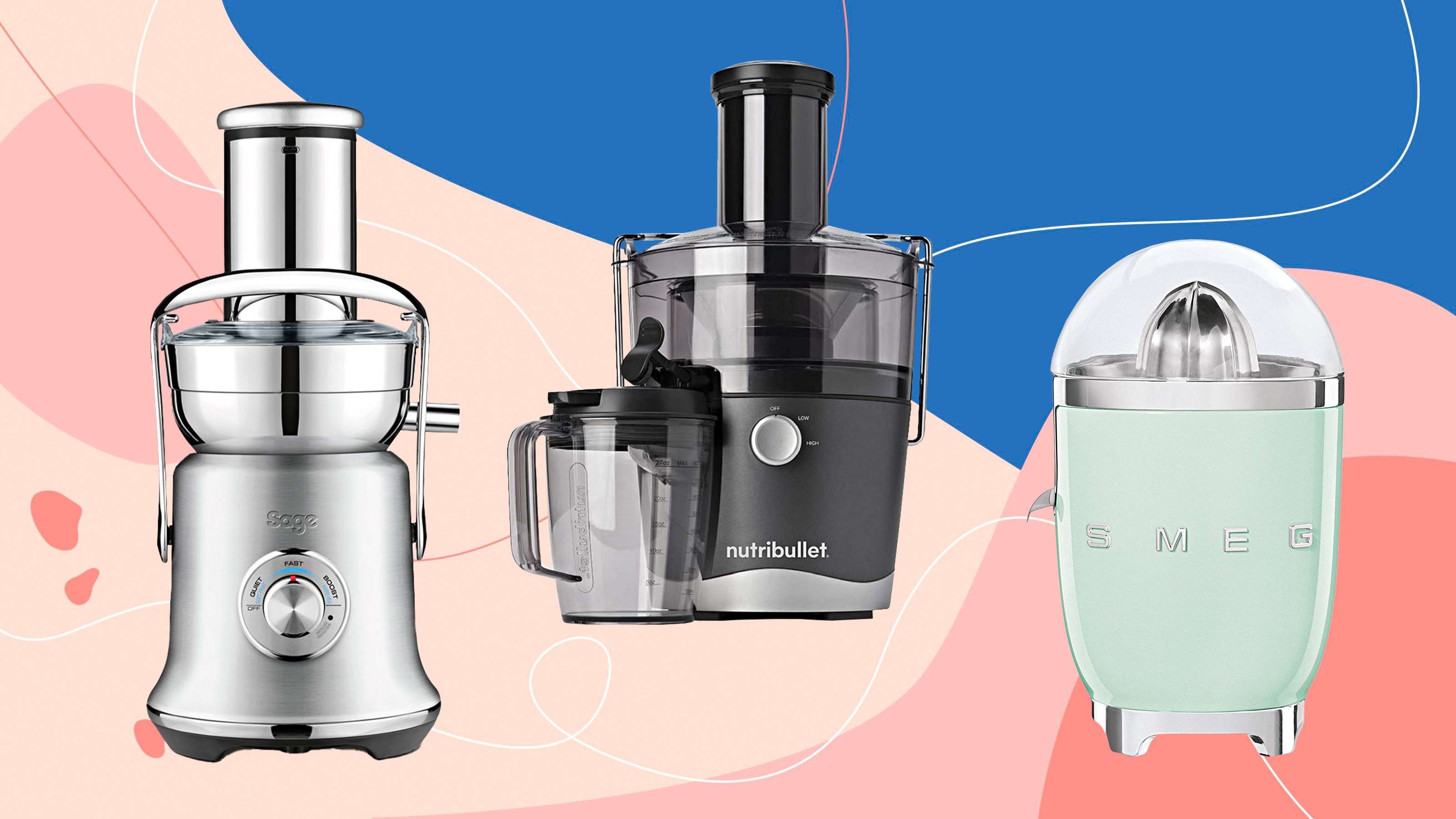

Choosing the best juicer can transform your home health game, whether you're making a ginger shot or a tall glass of celery juice to boost your five-a-day. Even if you're not fussed about the health benefits and just want to cut down on the cost of buying fresh cartons of juice, the best juicer will extract every last drop of orange, apple, and mango juice from your fresh fruit to deliver a tasty drink for a weekend treat.
There are two main types of juicers: masticating, and centrifugal. A centrifugal juicer is often cheaper, and mimics the best blender in shredding fruits and vegetables using blades. The is then strained away from the pulp, and poured directly into your glass. A masticating juicer, also known as a cold press juicer, will slowly remove the juice from fruits by replicating a hand-juicing motion. This can be more expensive, but it will leave the fibres in your drink intact, which means they are often seen as a healthier choice.
We have also included a citrus juicer in our guide to the best juicers. A citrus juicer is only suitable for those who want fresh-squeezed oranges, grapefruit, and lemons, but they have a spinning reamer that will take all of the hard work out of making fresh juice.
We've tested all of the juicers you can find below, and when testing we checked for key indicators of a good juicer. The main one is how dry the pulp is, because this means that the maximum amount of juice has been extracted from your ingredients. Juicers are known to be quite hard to clean, so we also considered the cleaning process and the setup process.
The quick list
In a rush? Never fear. This quick list will give you a brief overview of the best juicers. For more information on each, you'll find lengthier explainers below, and links to our full reviews of the machines, too.
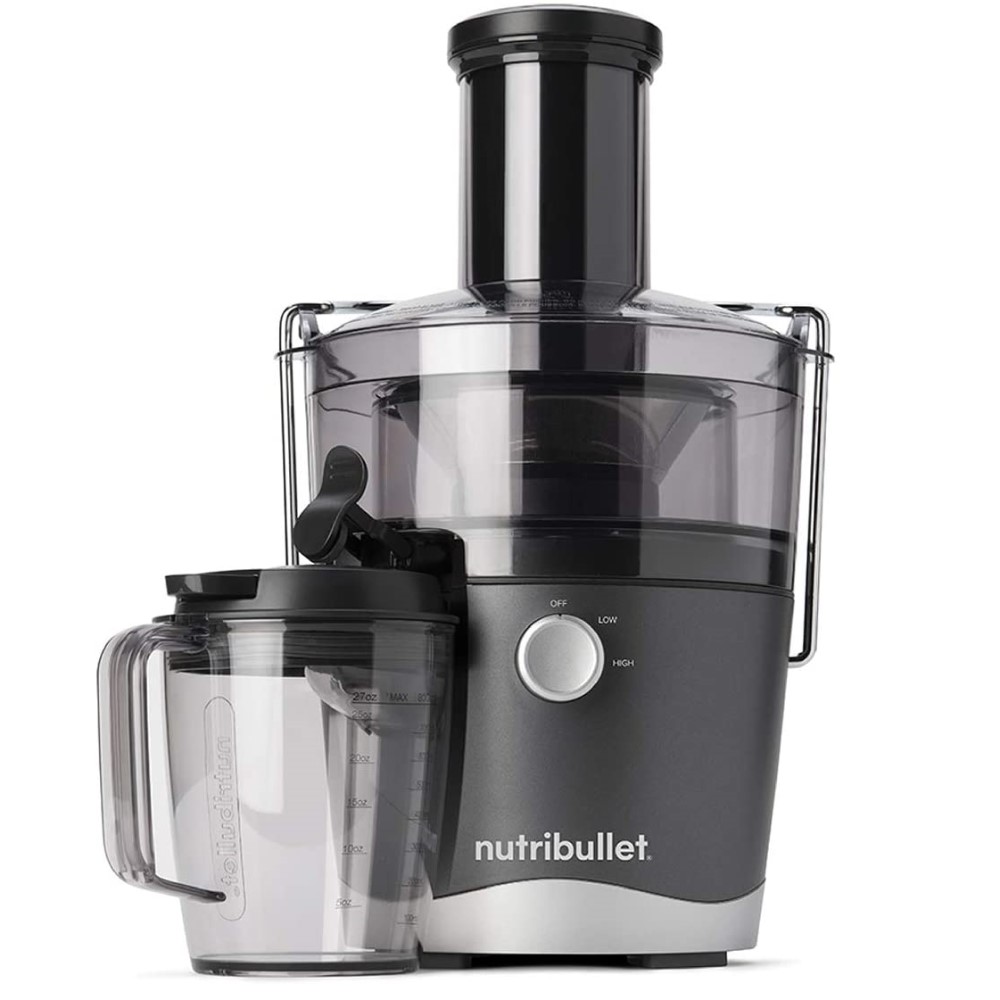
Best juicer overall
This comes with a central column for extraction, an external pulp container and a packed recipe book which even suggests how to use the pulp to cut down on waste. There are two speeds and it's easy enough to clean, which is why it's our fave pick overall.
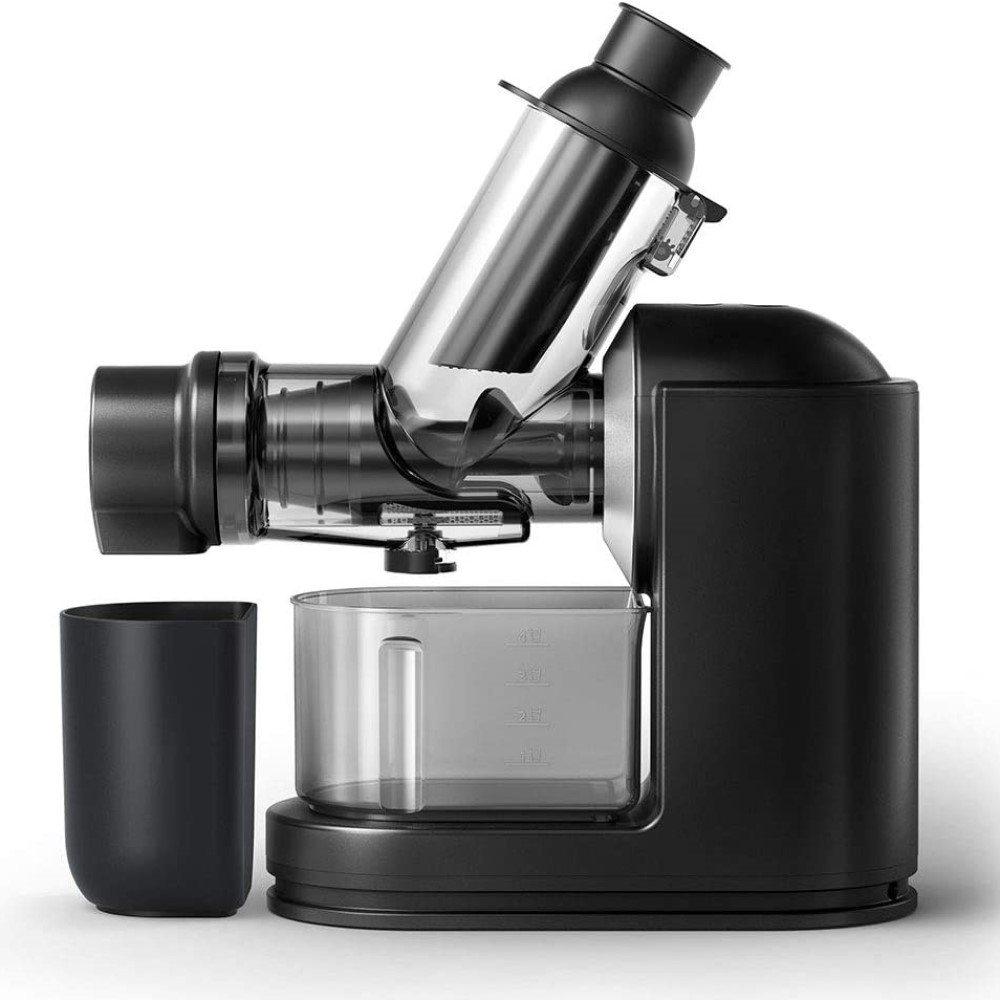
Best slow juicer
This masticator has dishwasher-safe detachable parts, and the machine is designed to be cleaned in 90 seconds for repeat usage. The feeding chute is wide enough to fit a whole apple, and holds true to its 80% extraction claim.
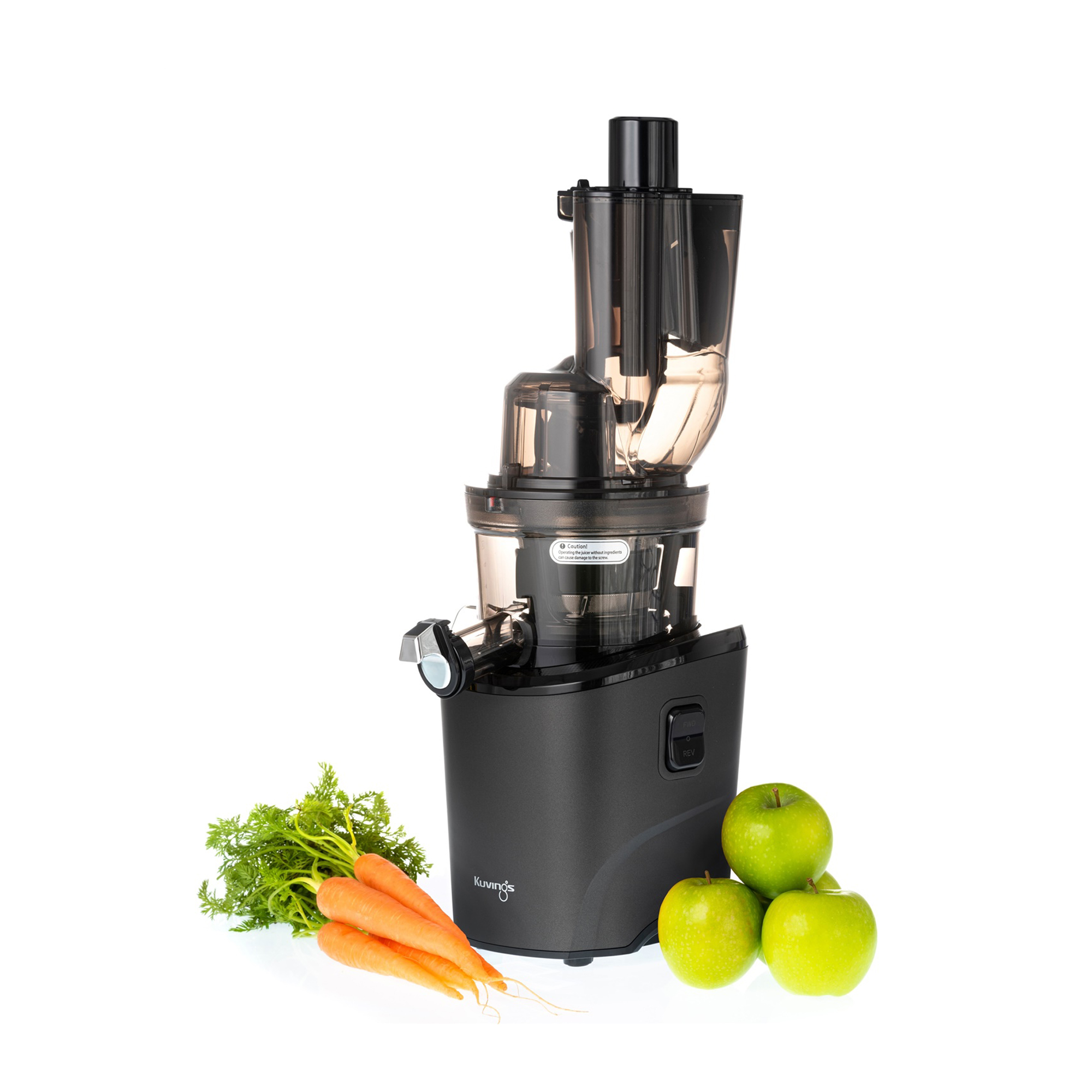
Best cold press juicer
This machine will get the most out of your ingredients and is great for tricker produce, like green leafy veg. You can use it to make nut milk and purées, too. The separate citrus module allows you to juice limes, lemons and oranges without peeling.
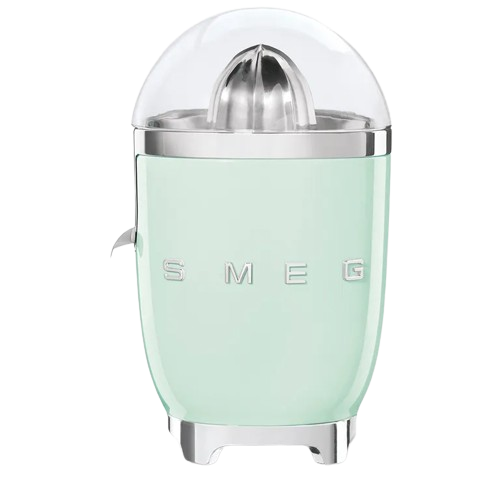
Best citrus juicer
This is larger than most citrus juicers (about the size of a small kettle) but immensely easy to use, set up and clean. The electric juicer starts to spin as soon as you apply the pressure of lemon or orange, and the juice is then strained by a removable pulp filter.
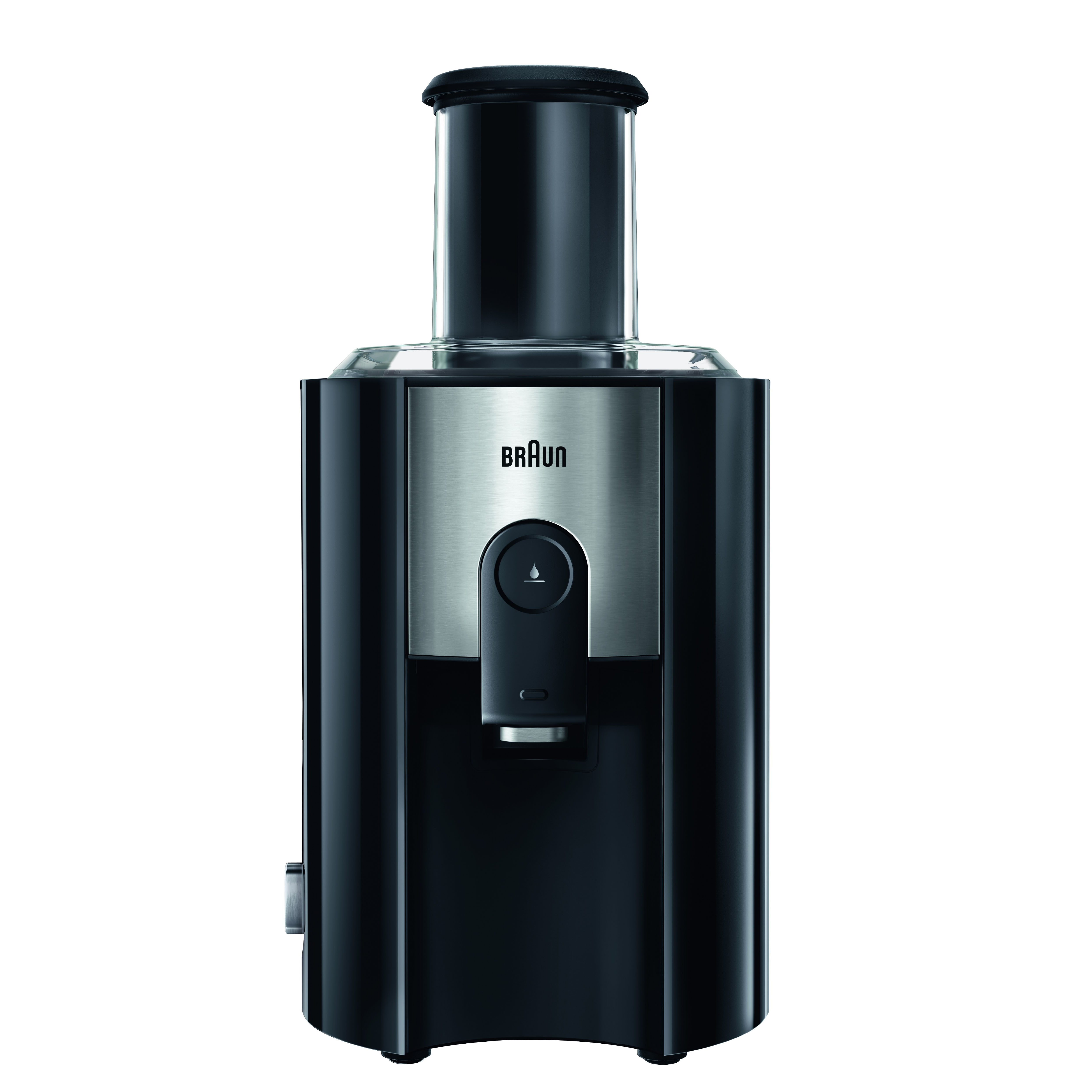
Best value juicer
Efficient, easy to assemble and packed with features, the Identity Spin juicer delivers plenty of bang for your buck. In testing, it produced a glass of juice in around 15 seconds, a good yield that was only slightly less than more expensive machines.
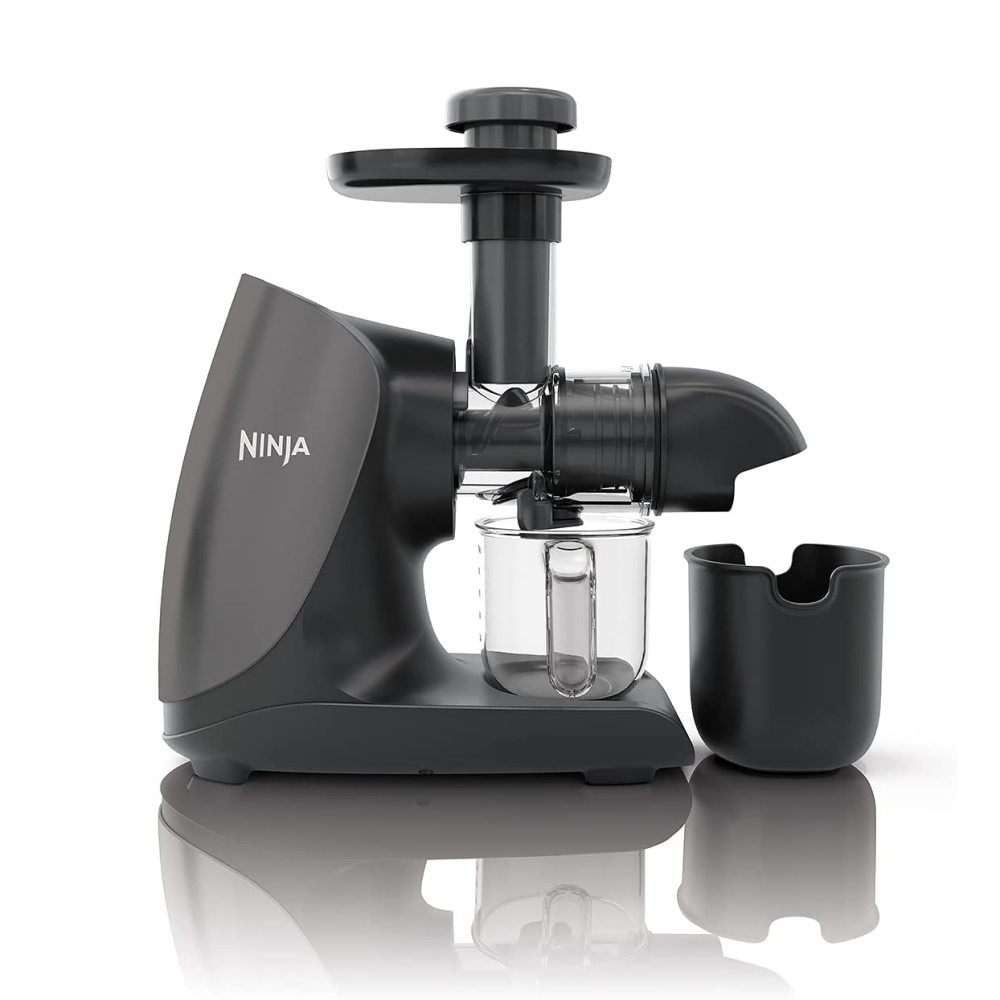
Best budget slow juicer
This cold press model has two filters, so you can choose from different pulp levels. The whole thing slots together very easily, and has delightfully compact dimensions. It's also a very quiet machine, and most of the parts can go in the dishwasher.
Best juicers
Best juicer overall
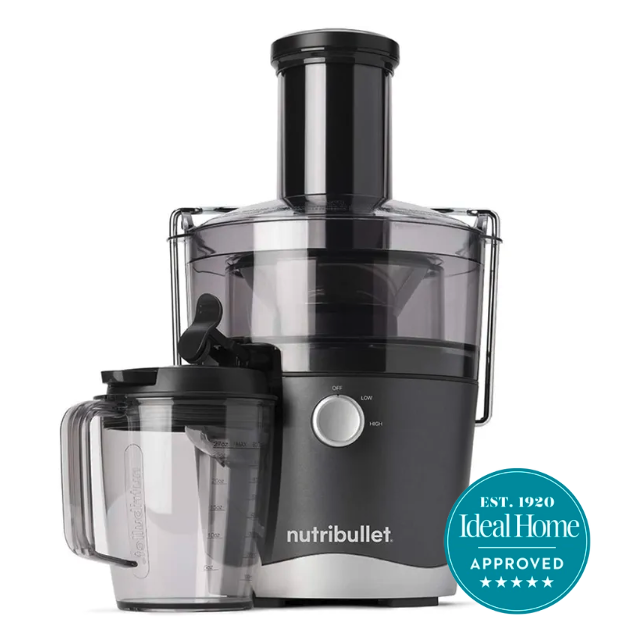
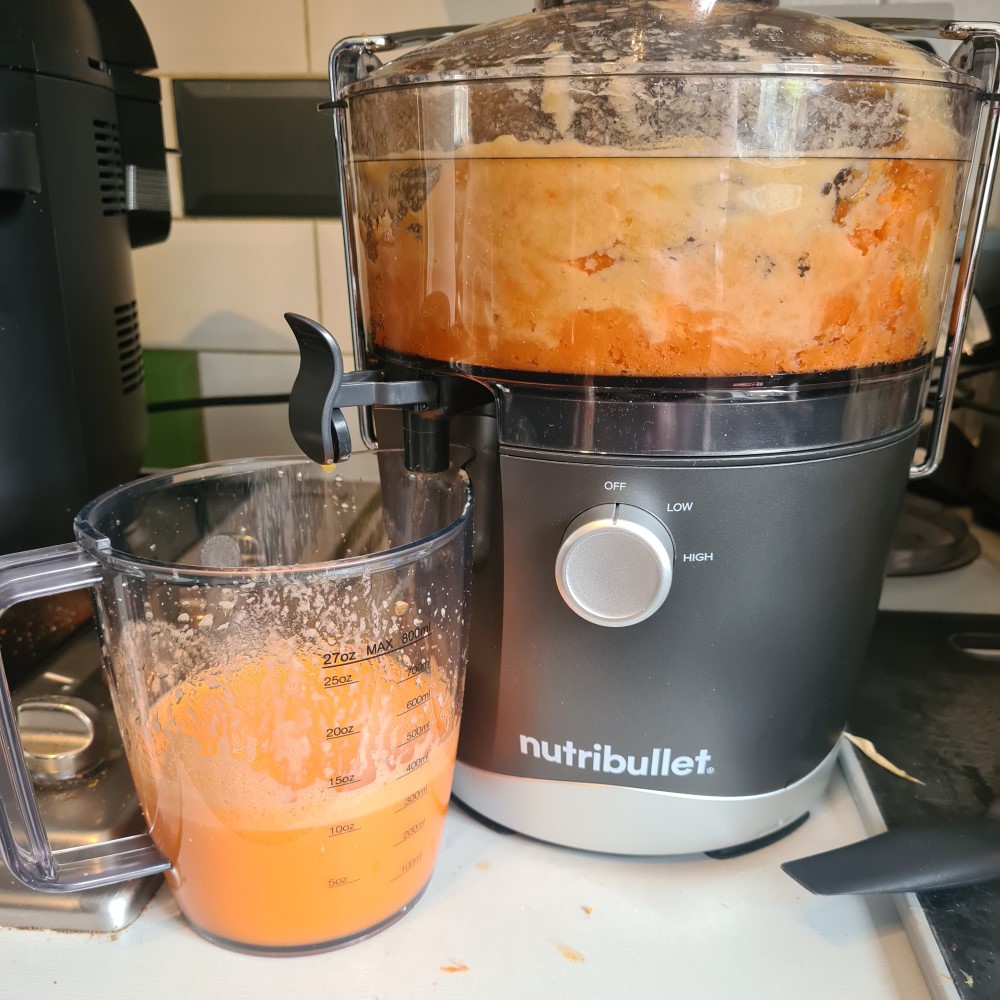
Specifications
Reasons to buy
Reasons to avoid
Nutribullet is making home juicing easy with its original juicer. Simply named the Nutribullet Juicer, it comes with a central column for extraction and an external pulp container. The recipe book is glorious, packed full of inspiring suggestions for health shots and even recipes to use up the pulp once you're done, which is a fantastic touch for those who hate waste.
We found that our juice was mostly froth-free and packed with delicious flavour when testing. There are two speeds, high and low, and the instruction book guides you through which setting to use on which fruits and vegetables to help you improvise your own recipes. As with all centrifugal models, it's quite noisy, and when juicing apples whole we had to push quite firmly to get the process going. When it begins juicing though, fresh produce is done in seconds.
Juice output was reasonably high, but because it juices so fast we did find that softer ingredients like celery and mango had a higher moisture content when testing the pulp. The outer pulp container fills up a little fast if you're doing juice for a crowd, but it's easy enough to clean thanks to the angled brush that is designed to scrape all the excess away and scrub the centrifugal mesh. Most parts are dishwasher-safe, which is a real relief when it comes to home juicing. Oh, and did we mention that this juicer is under £100?
Our Nutribullet Juicer review has the full details.
Best slow juicer
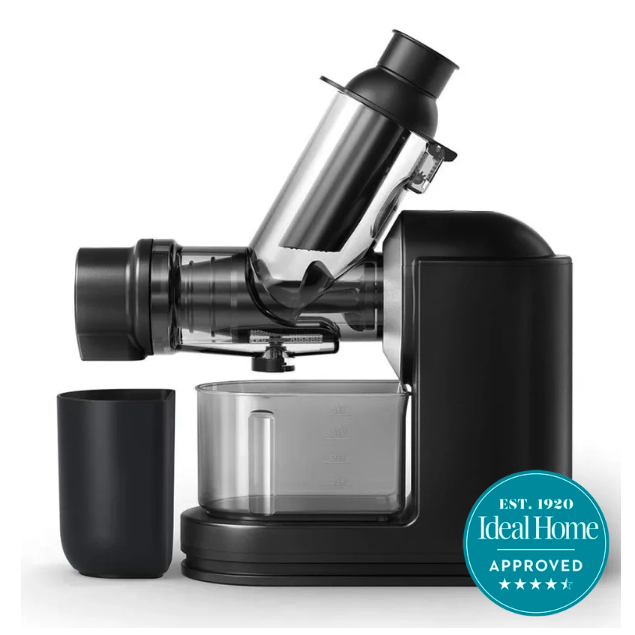
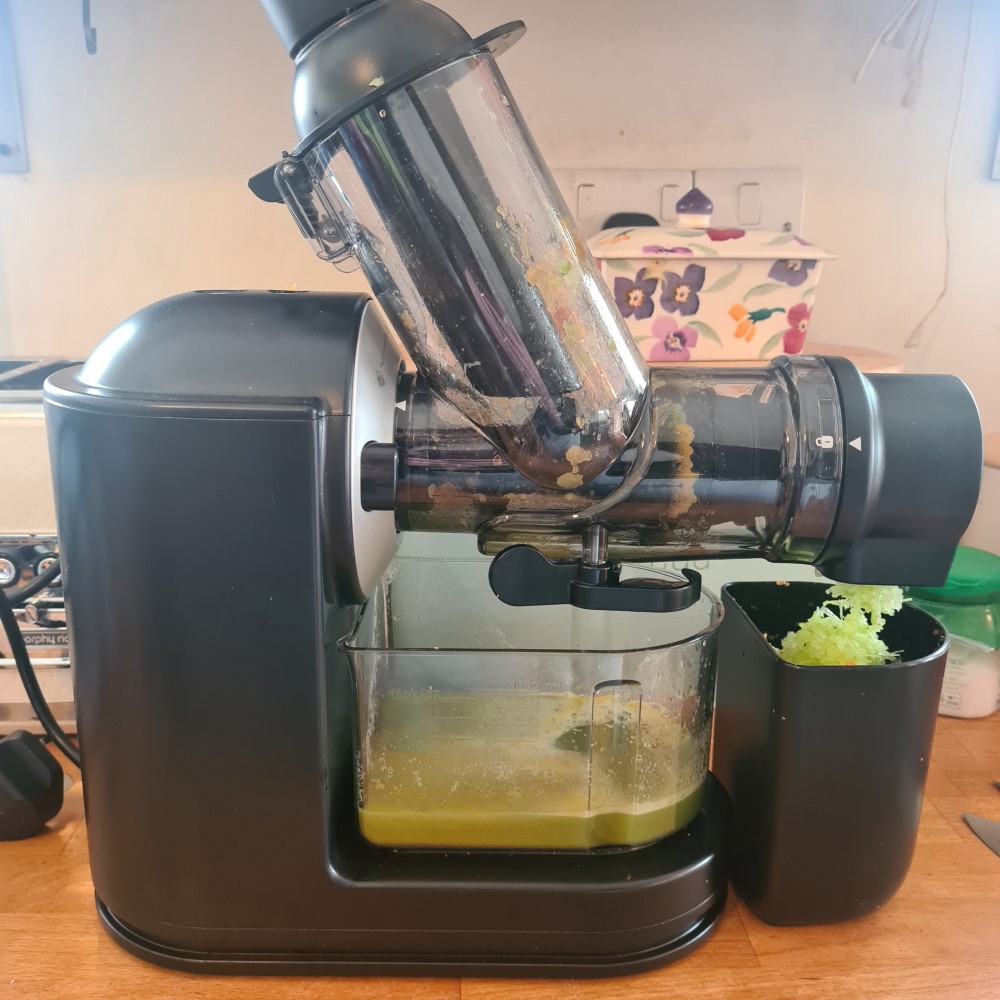
Specifications
Reasons to buy
Reasons to avoid
There are probably three things that can stop juicing from becoming a habit – extensive food prep, more hassle than juice and cleaning up afterwards. Fortunately, these are all points that the Philips Viva Cold Press Masticating Slow Juicer can help with. All detachable parts are dishwasher safe, and the machine is designed to be cleaned in 90 seconds for repeat usage. The feeding chute is wide enough to fit a whole apple, although we found it was still better to cut up large apples as the 70mm feeding chute is not wide enough for everything.
As with most masticating juicers we found that it performed much better when we chopped up the ingredients before juicing, because it would struggle to get through apple skin or orange pips. However, it's a sturdy choice that impressed us during testing with how quiet it was when operating. Our juice had a higher pulp content than most, but it was low in froth because of the slow speeds when juicing.
This juicer isn't too expensive given that it's a masticating juicer with a sturdy design. The footprint is also not too expansive, which is great news for smaller kitchens. The Philips Viva Cold Press Masticating Slow Juicer also comes with a container that can fit up to a litre of juice, but the pulp collector is a little on the small side. We found that the pulp was a little damp on testing, but the 80% extraction claim generally holds true.
Our Philips Viva Collection Masticating Juicer review has the full details.
Best cold press juicer
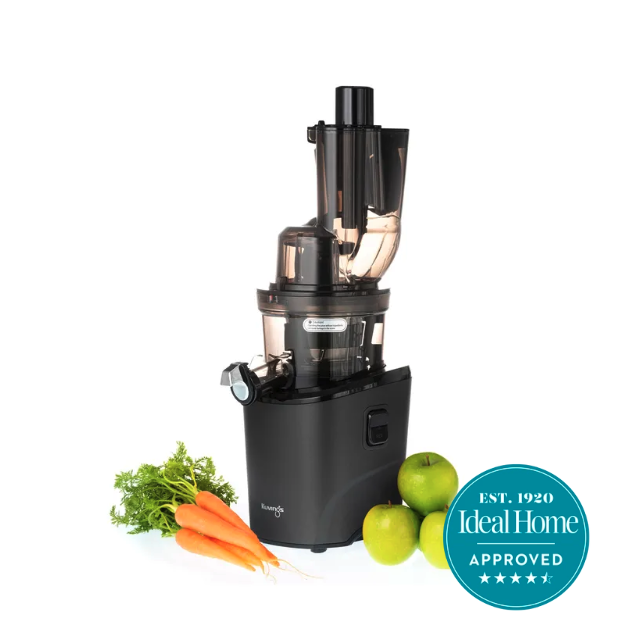
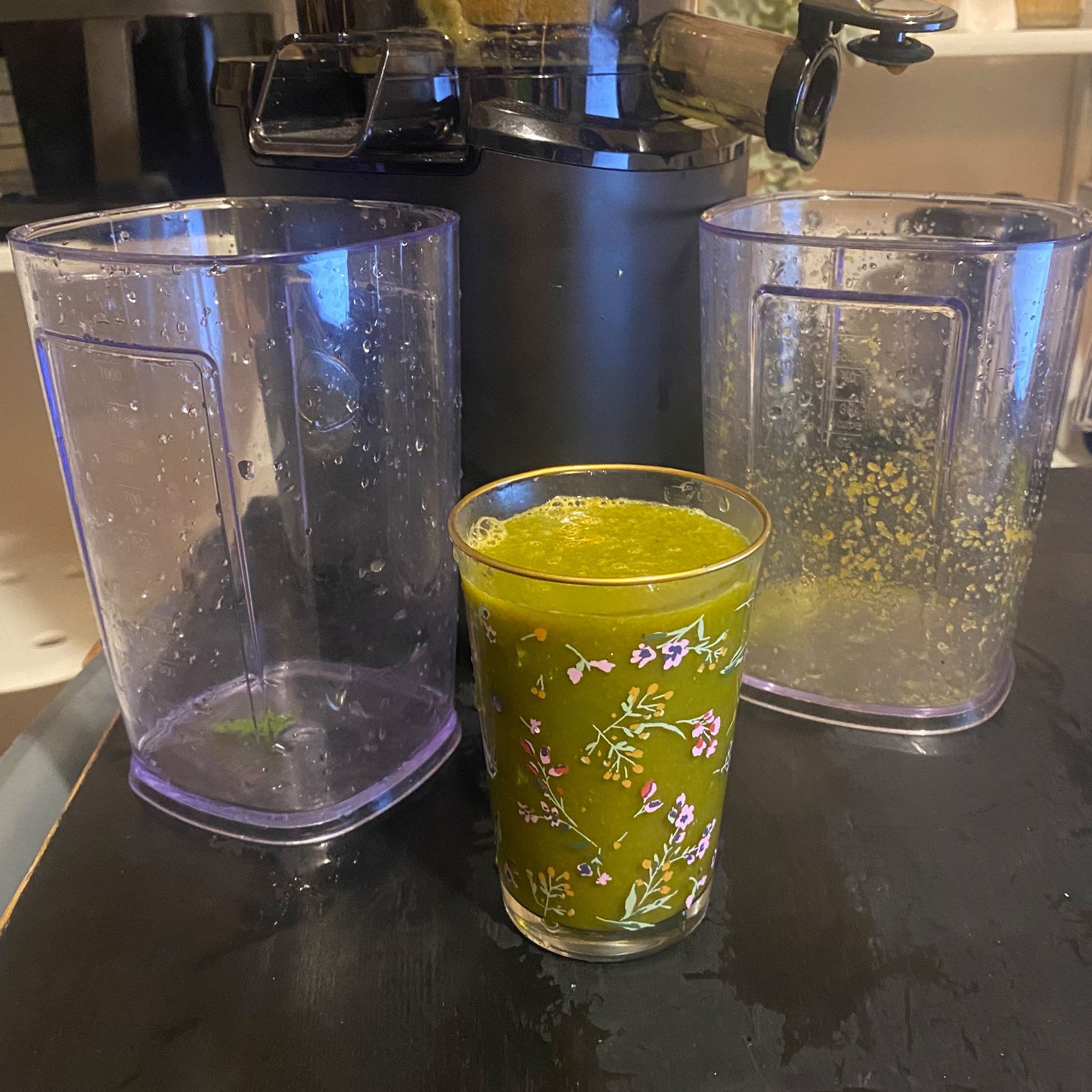
Specifications
Reasons to buy
Reasons to avoid
Getting the most out of your fruit and veg isn’t always easy but this is the cold press juicing machine to solve all your yield issues. It’s ideal for tackling the trickiest ingredients, such as green leafy veg, as well as being able to make dairy-free milks from nuts and purées for baby food and sauces.
Bolt on the separate citrus module and it’ll also function as a reamer so you can juice limes, lemons and oranges without peeling. The secret to its success is in the clever design. Where it differs from many slow juicers is that it has an 82mm feed chute equipped with a flip gate rather than a fin to protect your fingers.
In tests, we found it performed well with hard fruit, such as apples, as only dry pulp was ejected, while one piece of fruit produced a good 100ml of juice, and the same with oranges – three fruit yielded 250ml. Pineapple also processed efficiently, although mango and ginger root were trickier and tended to leave pulp wrapped around the inside.
It also made smooth almond milk – thinner than pre-made but with the bonus of being able to use the waste pulp in recipes. The only elements to be aware of is that it’s heavy, so best as a permanent worktop resident, and it’s pricey, so a more suitable choice for juice devotees rather than those who enjoy an occasional glass.
Our Kuvings REVO830 Cold Press Juicer review has the full details.
Best citrus juicer
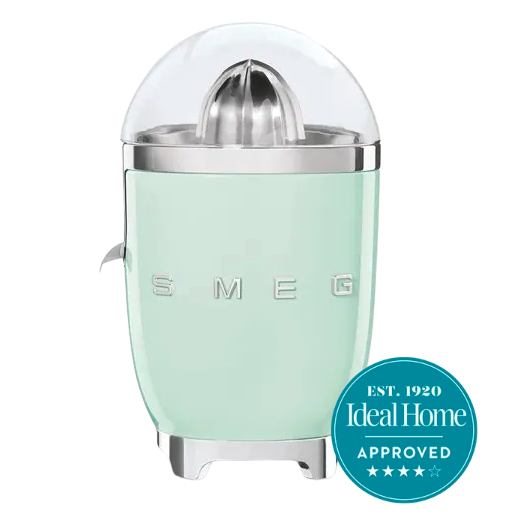
4. Smeg CJF01 Citrus Juicer
Our expert review:
Specifications
Reasons to buy
Reasons to avoid
The Smeg CJF01 Citrus Juicer is no multi-tasker, but it is a beautiful appliance that we would never want to take off the kitchen counter. It's larger than most citrus juicers but immensely easy to use and set up. The electric juicer starts to spin as soon as you apply the pressure of lemon or orange, making morning juice phenomenally easy to achieve.
Simply click down the side spout to fill a cup with fresh OJ or lemonade, and enjoy. As the name suggests, you can't juice anything other than citrus in this option, but it's a fantastic brunch companion that comes in a massive range of colours. We were really impressed with the yield, and it feels intuitive to press down on when you're holding your halved orange or grapefruit. Another great feature is the spout, which is drip-free and clicks down to release your juice when you're ready to pour.
The body is made of die-cast aluminum which feels classy and high-quality, and the attachments are all dishwasher safe. We found that rinsing everything straight after use was an adequate way of keeping the juicer clean, though.
Best for value juicer for money
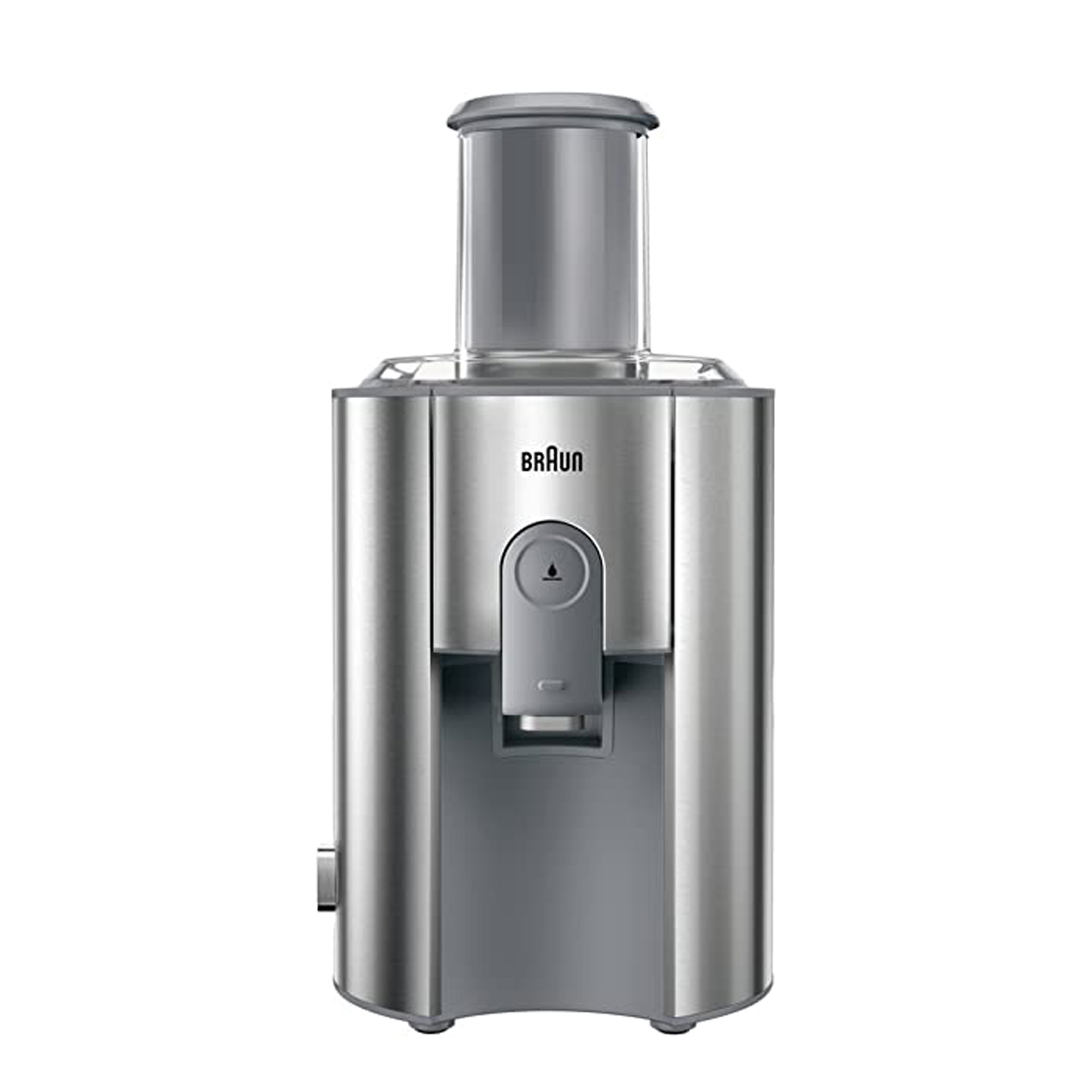
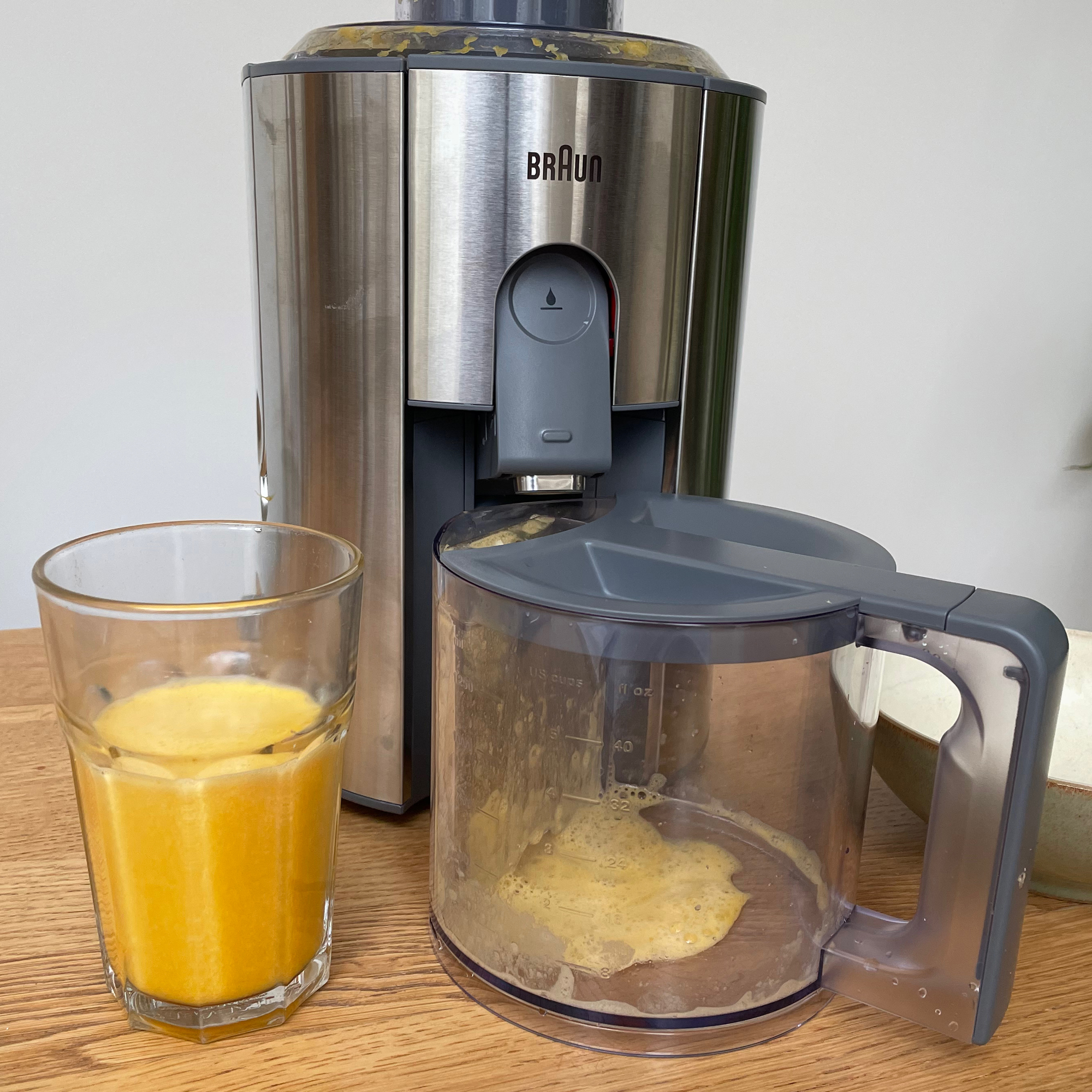
Specifications
Reasons to buy
Reasons to avoid
Efficient, easy to assemble and packed with features, the Identity Spin juicer delivers plenty of bang for your buck. Not only will it whizz through large pieces of fruit and vegetables in seconds, with even whole apples fitting down its 7.5cm chute, but the anti-drip and anti-splash spout also ensures your worktop stays spotless throughout.
A 900W motor and two speeds help it adapt to hard and soft fruit, while a 1.25-litre lidded jug with a foam separator allows you to store juice. The machine is especially noisy in operation. In testing, it produced a glass of juice in around 15 seconds, a good yield that was only slightly less than more expensive machines.
Where the Identity Spin may not appeal to everyone is in its equally efficient design – it’s rather chunky, and at a weighty 6.2kg, not as suitable for lifting in and out of a cupboard. However, clean-up is a big win for fans of low-maintenance kit – all the parts are dishwasher-safe and there’s a cleaning brush for whisking away stubborn fibres from the micro-mesh filter.
Best budget slow juicer
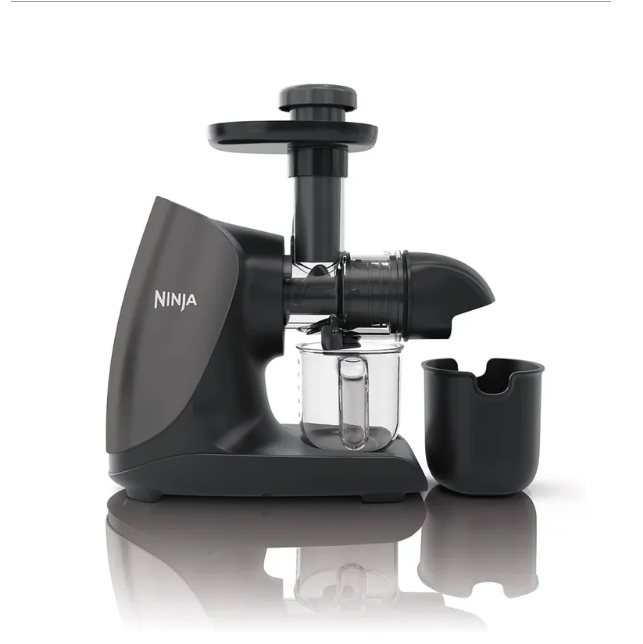
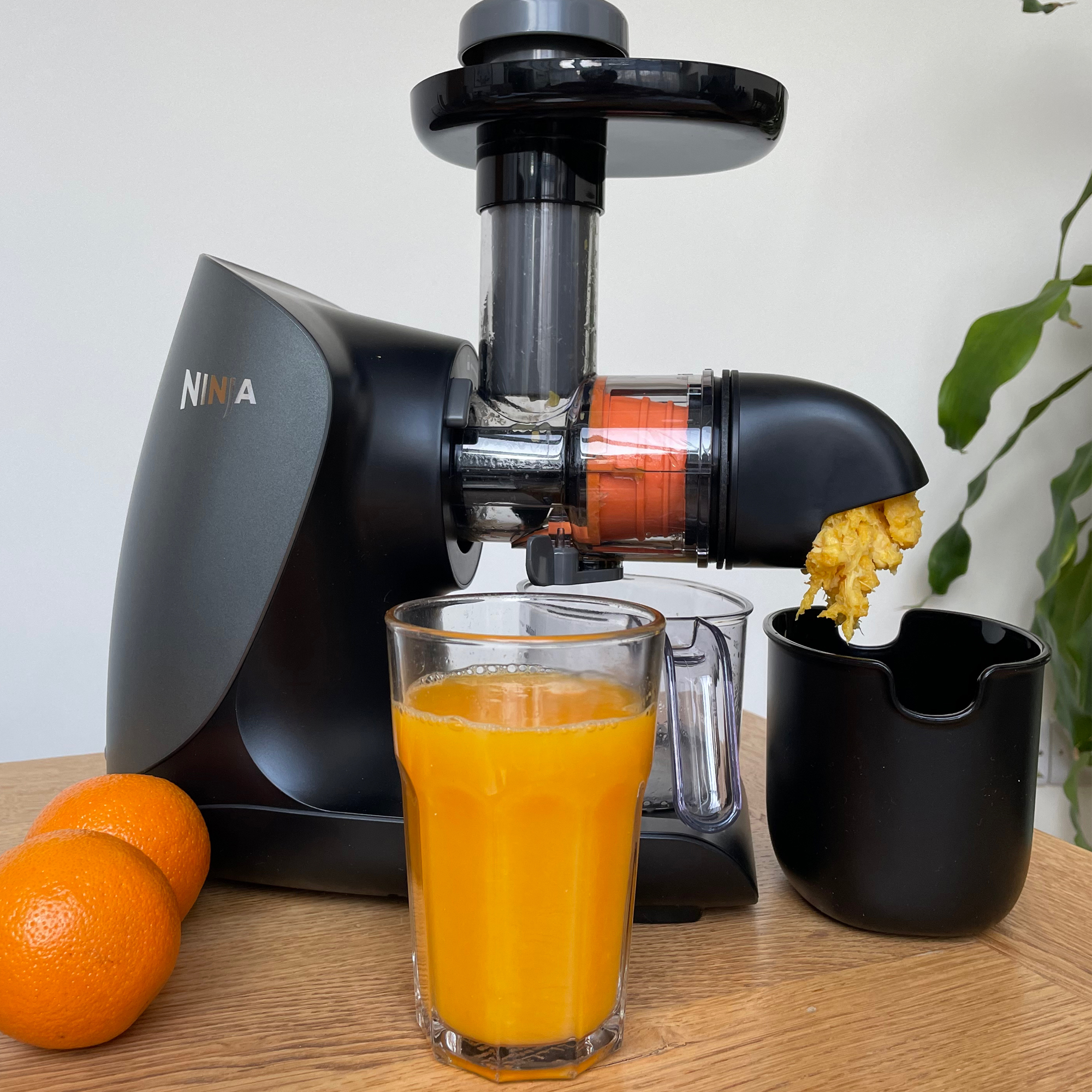
Specifications
Reasons to buy
Reasons to avoid
If you’re thinking of starting a fresh juice habit and aren't willing to budge from a cold press model, this is a good pick. For starters, there are two filters, so you can choose from a variety of different pulp levels. The whole thing slots together very easily, and it's certainly appealing for its compact dimensions. The feeding chute is small though, so it's best to chop up fruit in advance.
Because it's a cold press juicer this machine works very slowly. It also has a sensitivity to seeds and skin, so we found that there was a lot of prep needed to get a quality glass of juice.On the plus side though, it's a very quiet machine, and most of the parts can go in the dishwasher. The price is also very reasonable for a cold press juicer.
When we juiced apples the machine definitely struggled on the finest pulp setting, and we had our best results when using the most easygoing filter. It also helped to peel the apples in advance, otherwise the skin clogged up as it left the machine and made our lives a bit trickier.
Our Ninja Cold Press Juicer review has the full details.
How we tested the best juicers
As part of our commitment to how we test products that we feature at Ideal Home, we've tested all of the juicers within this guide extensively, for up to two months. We also keep an eye out for new releases, so that this guide is a true reflection of the top juicers out there.
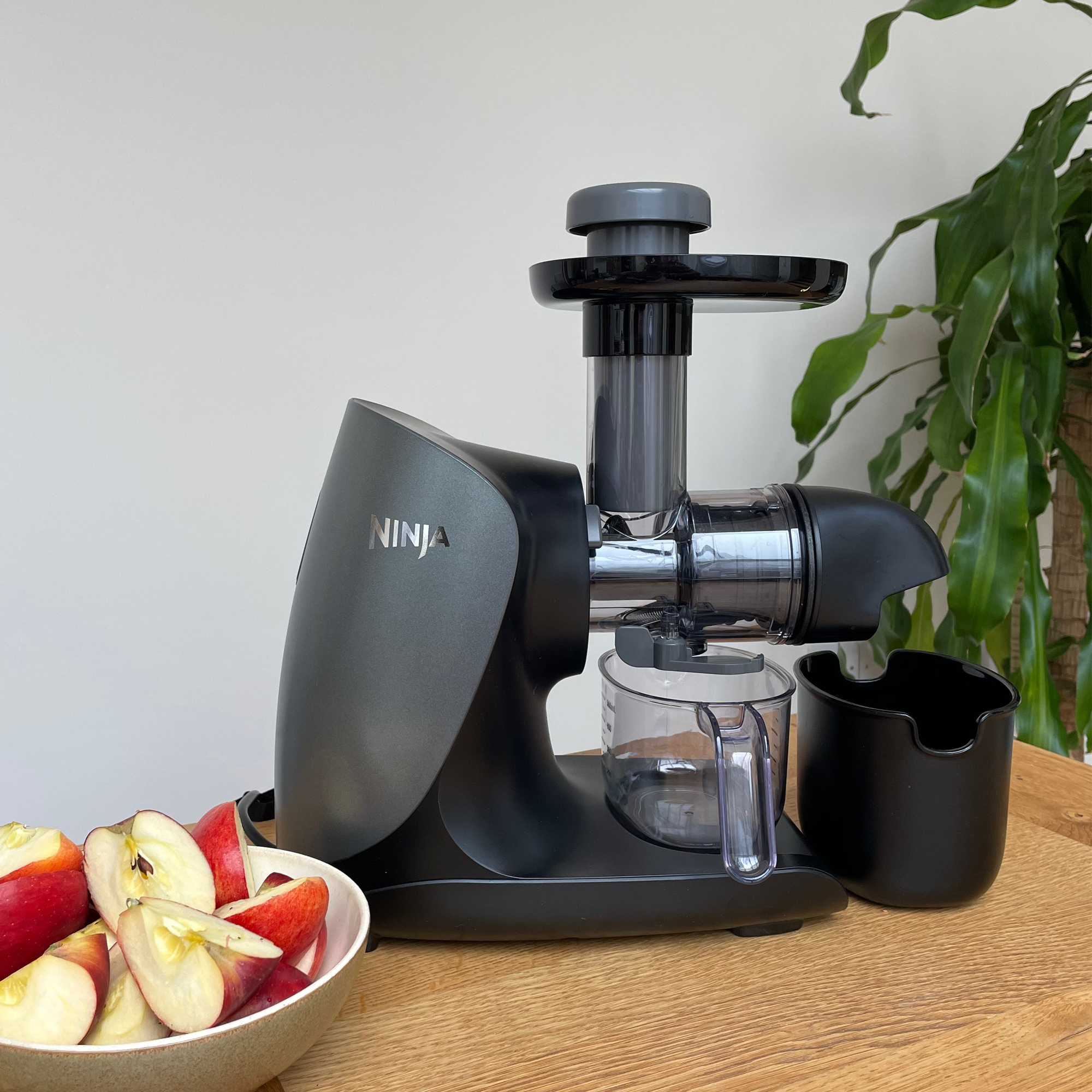
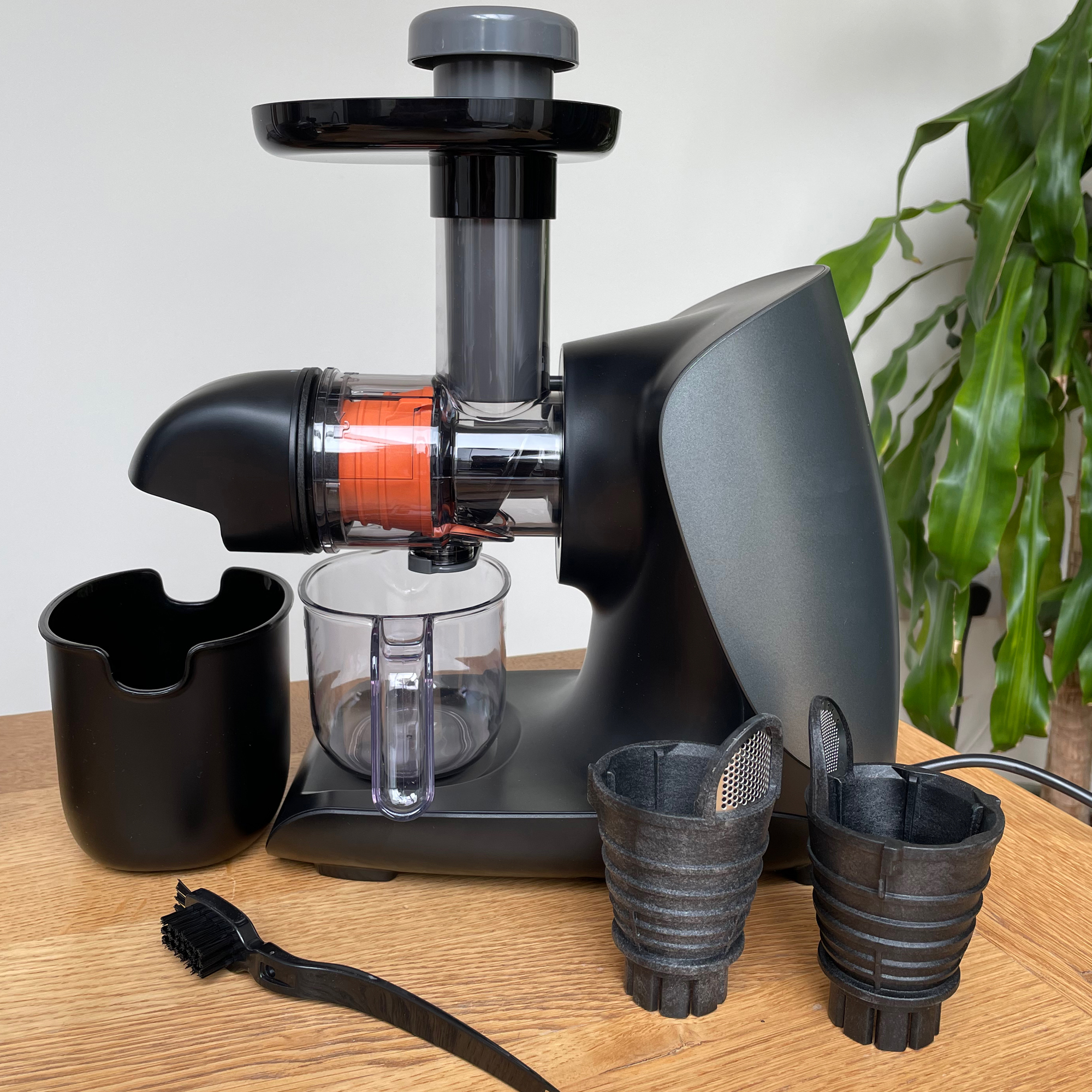
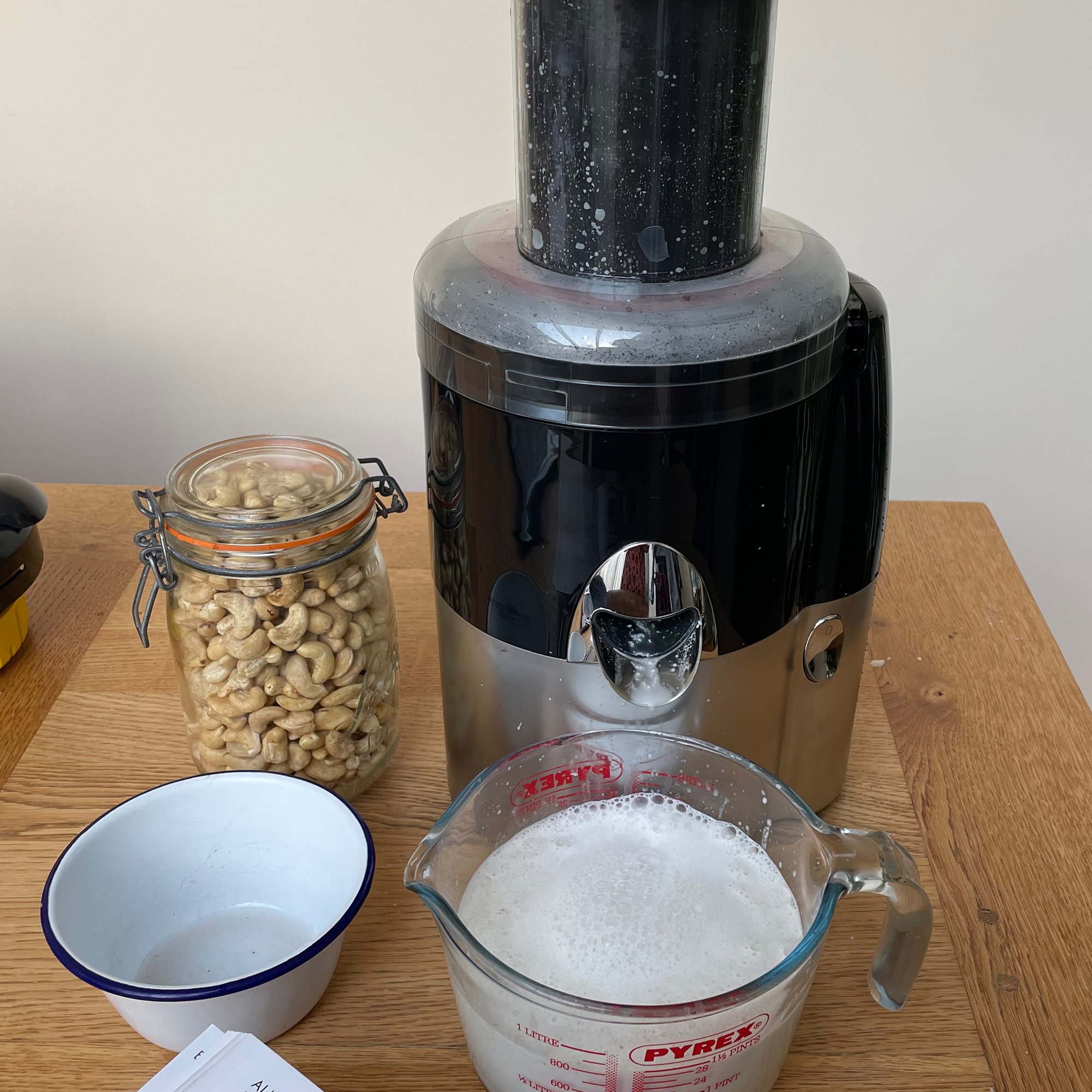
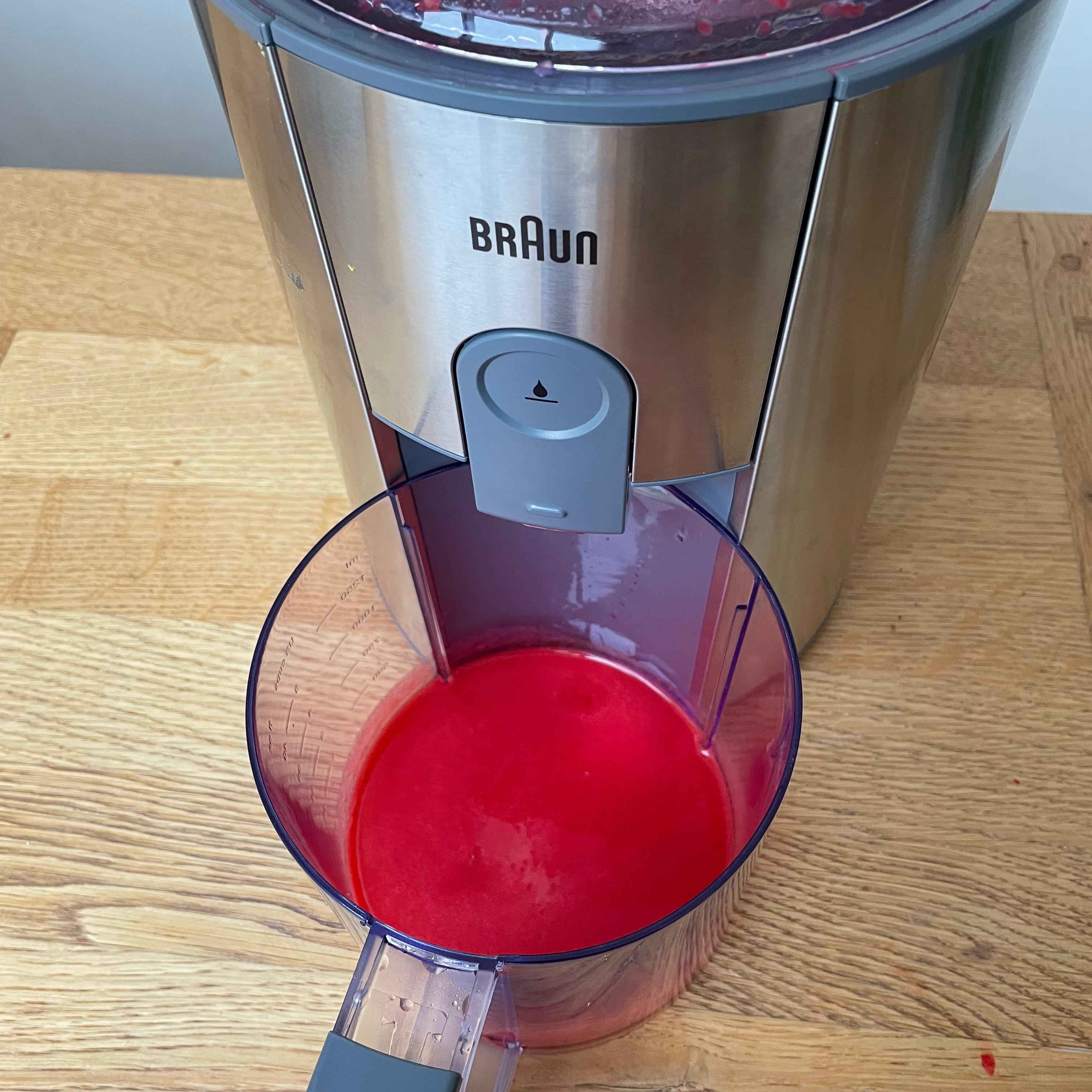
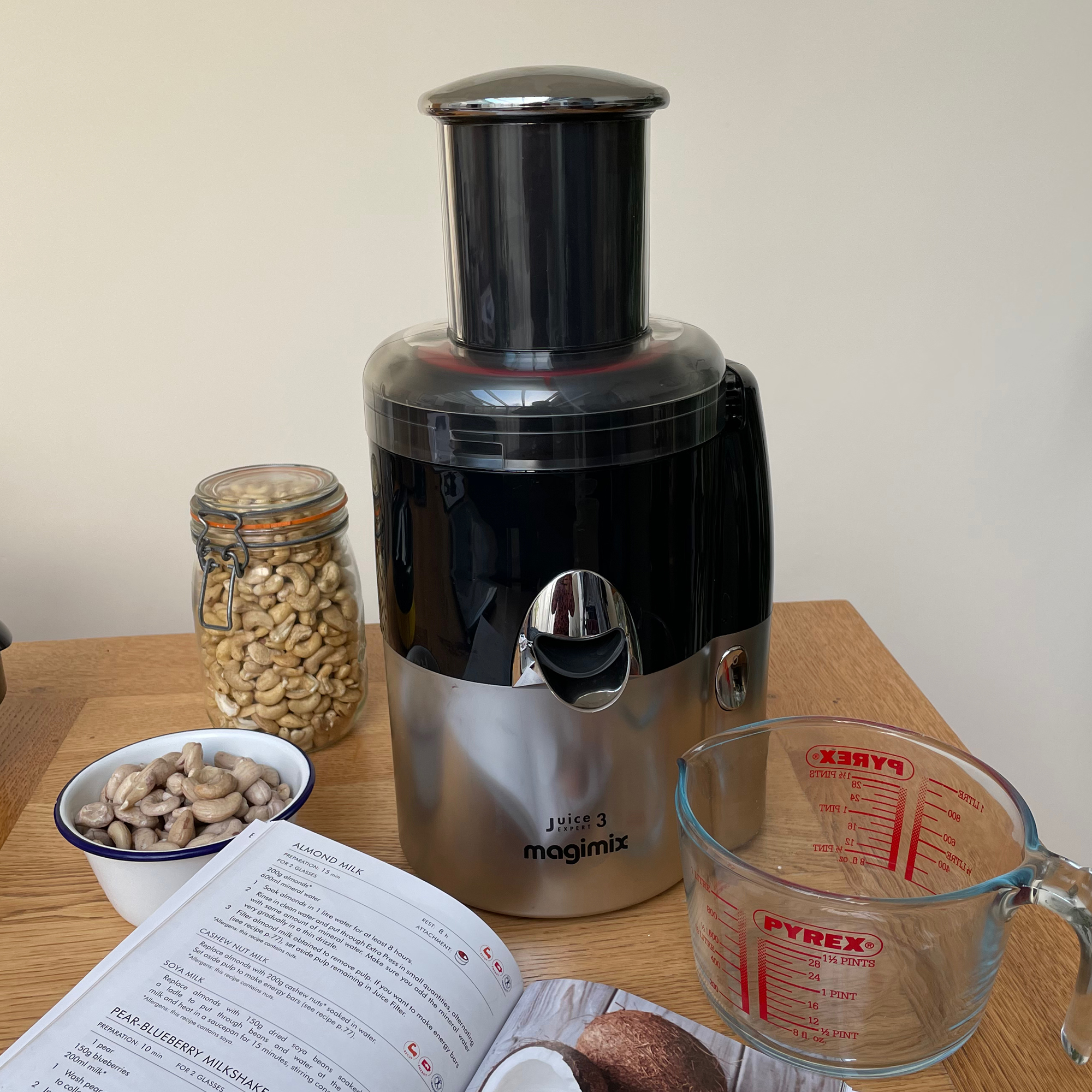
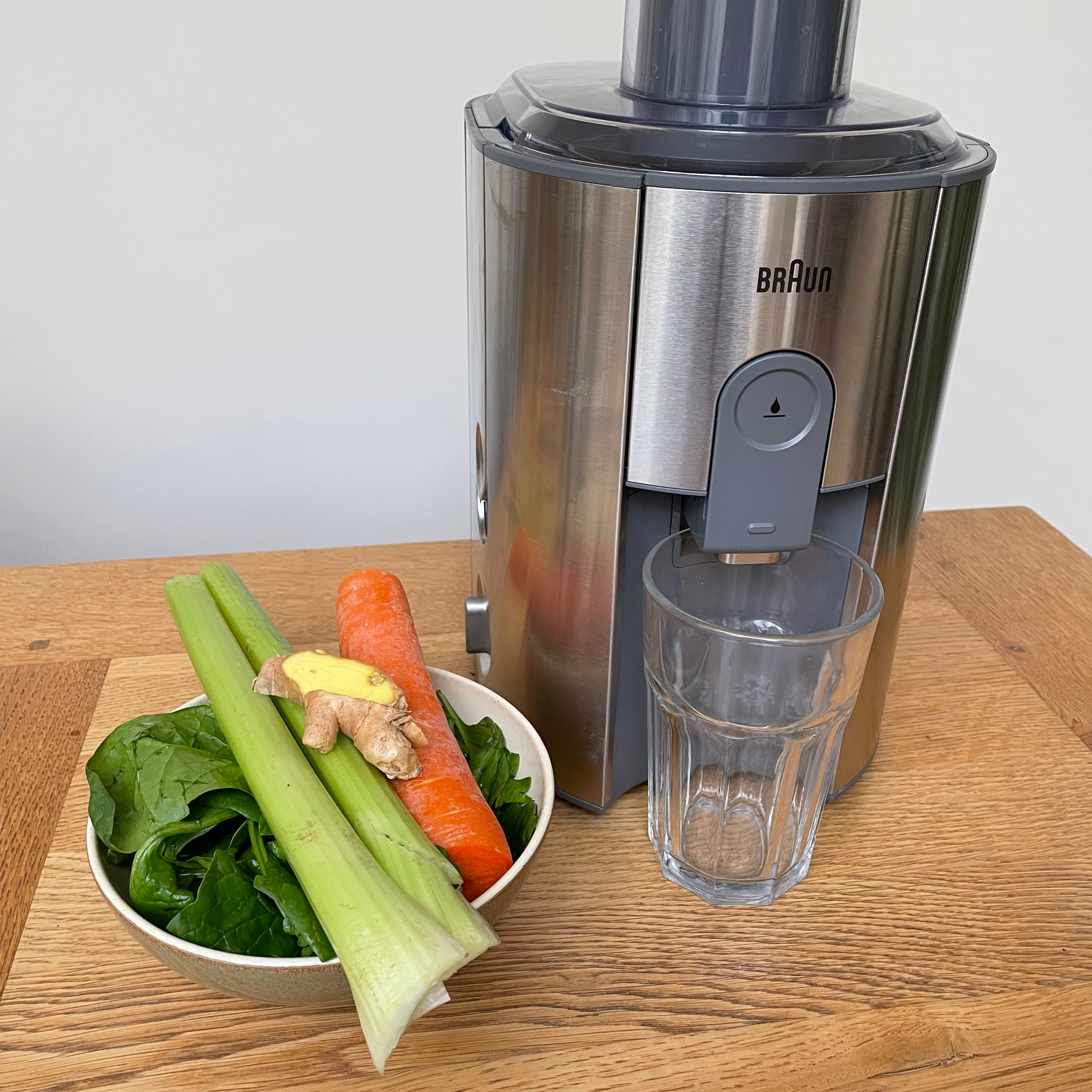
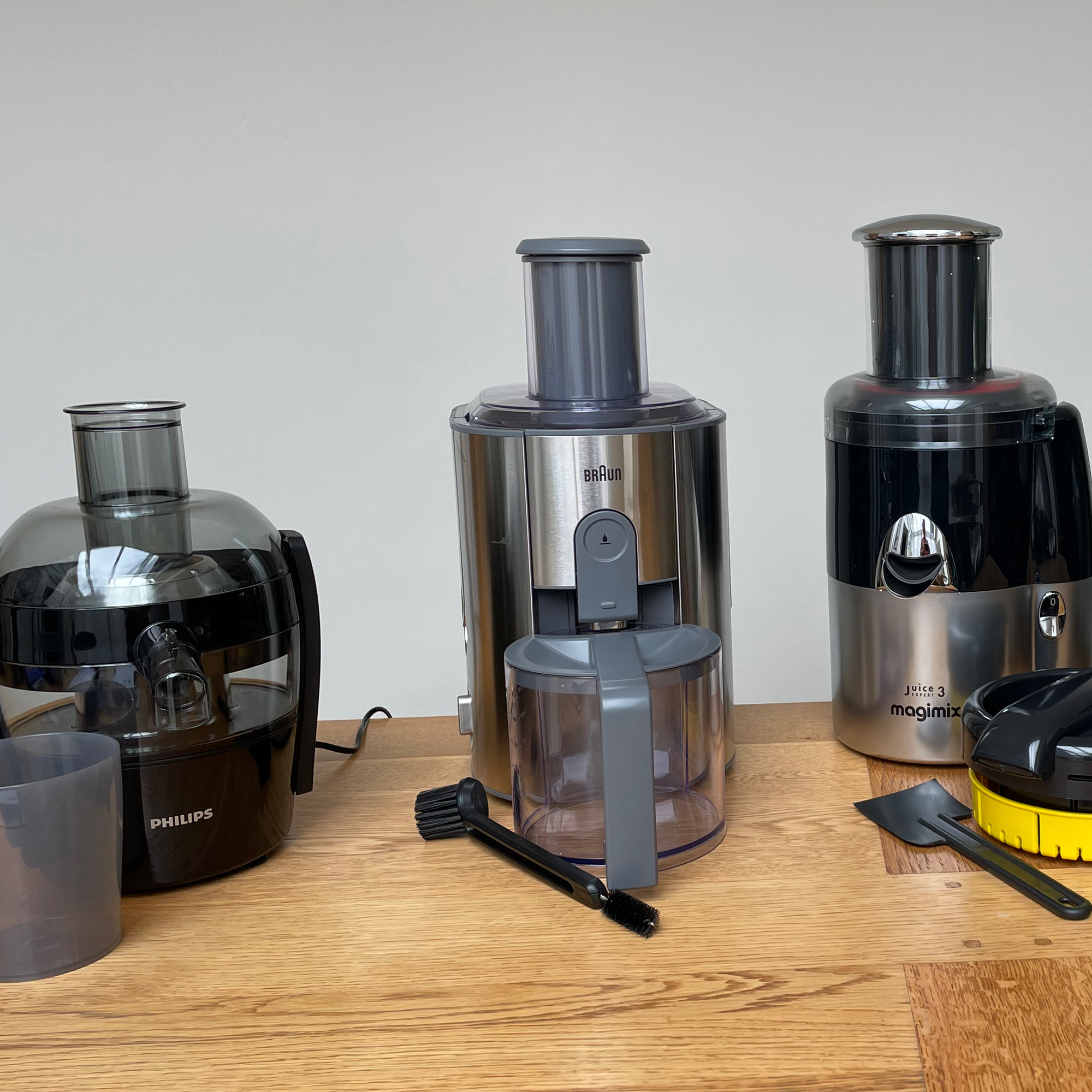
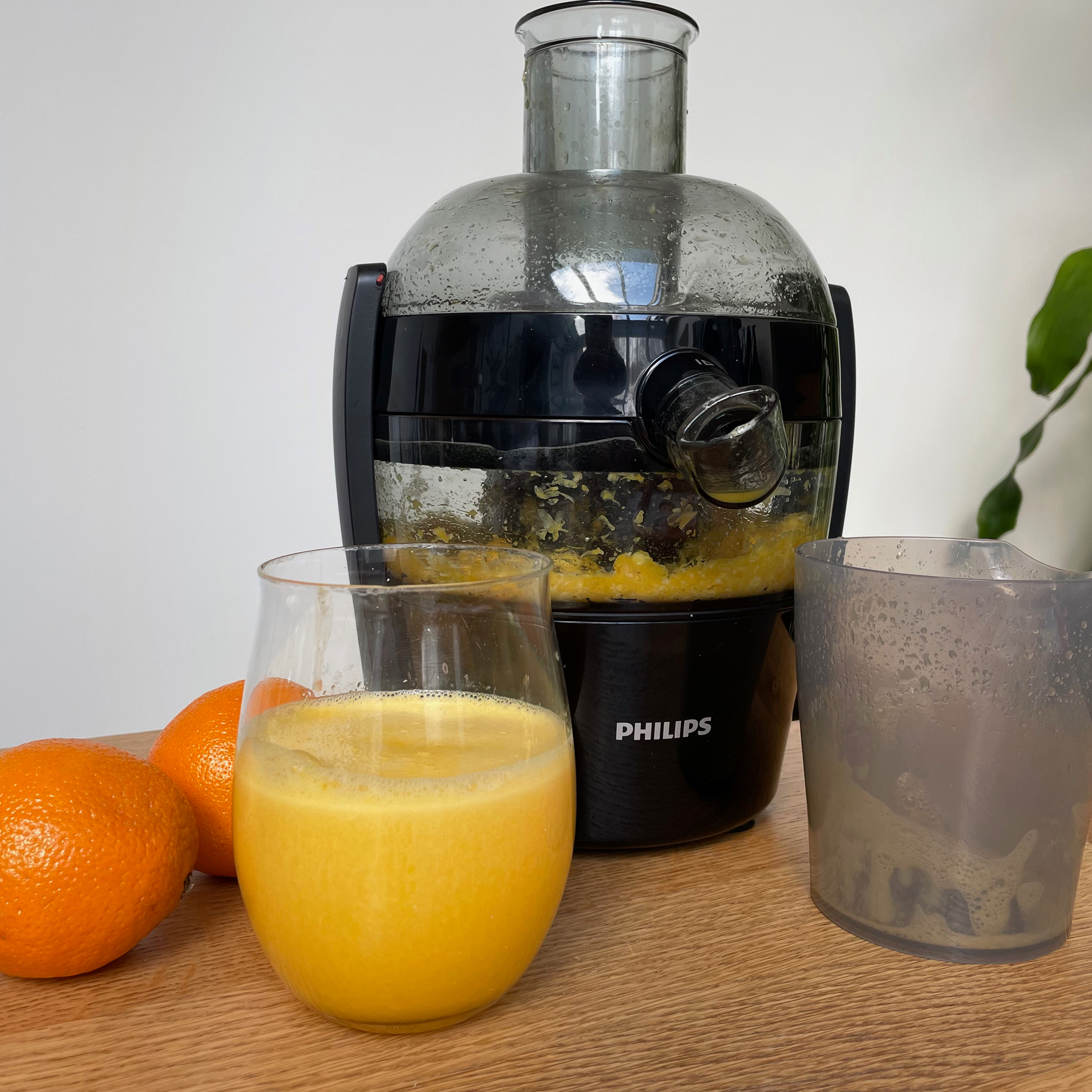
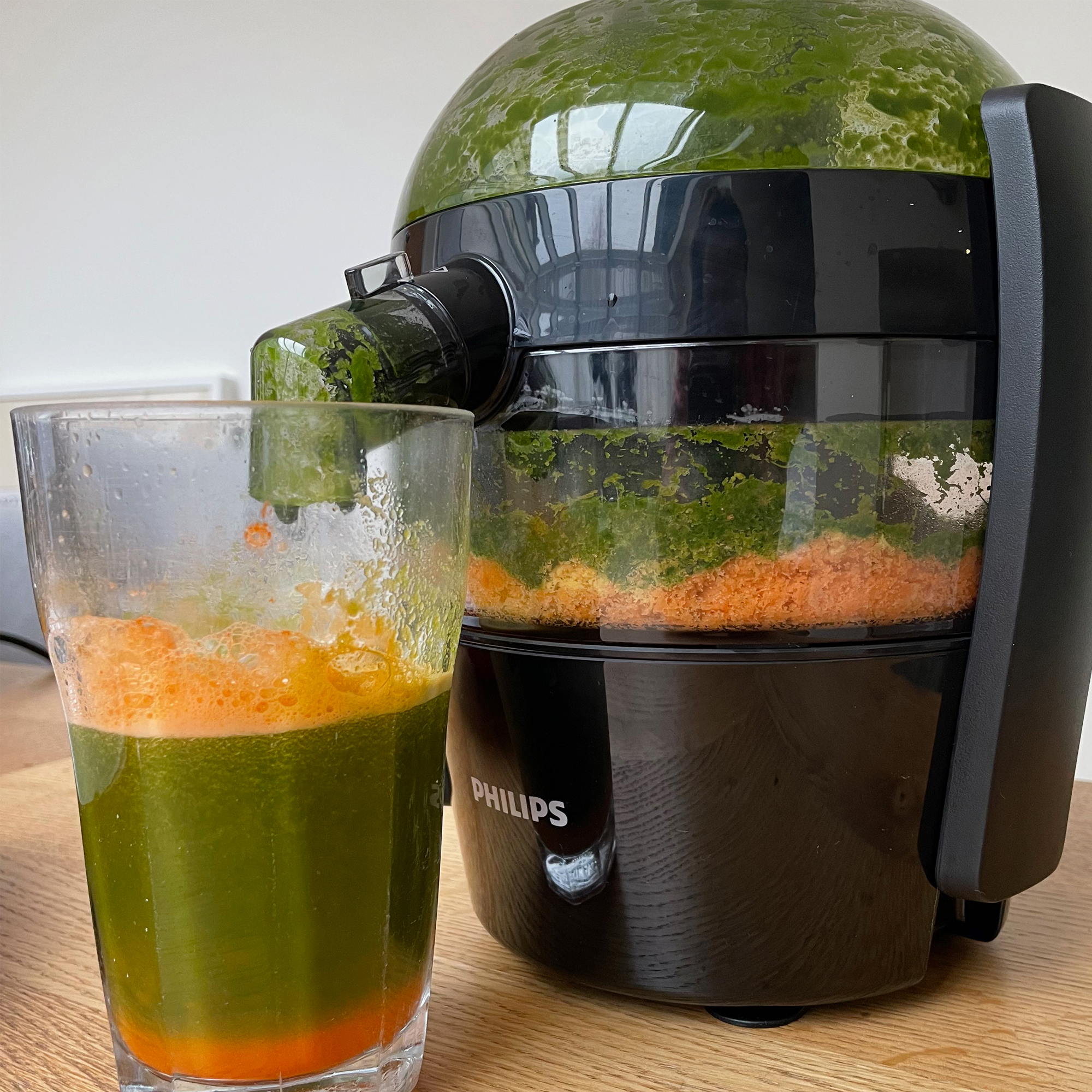
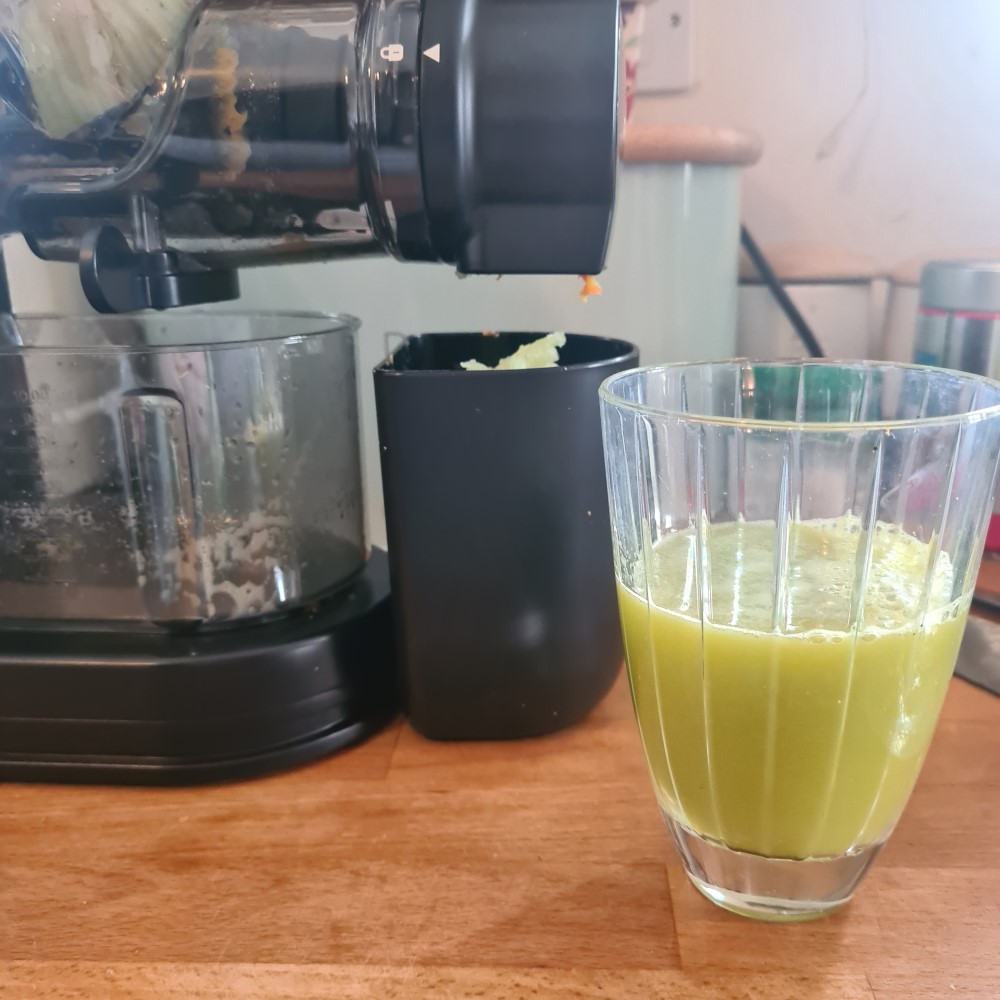
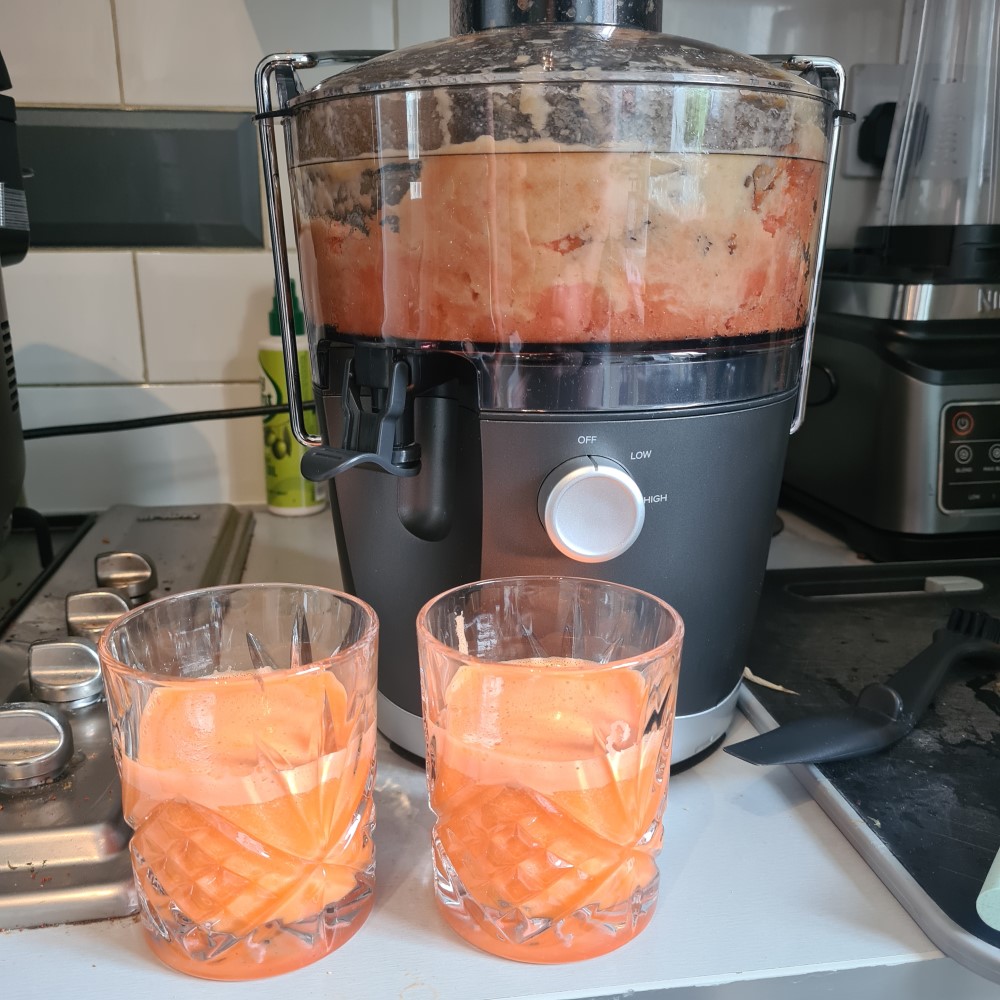
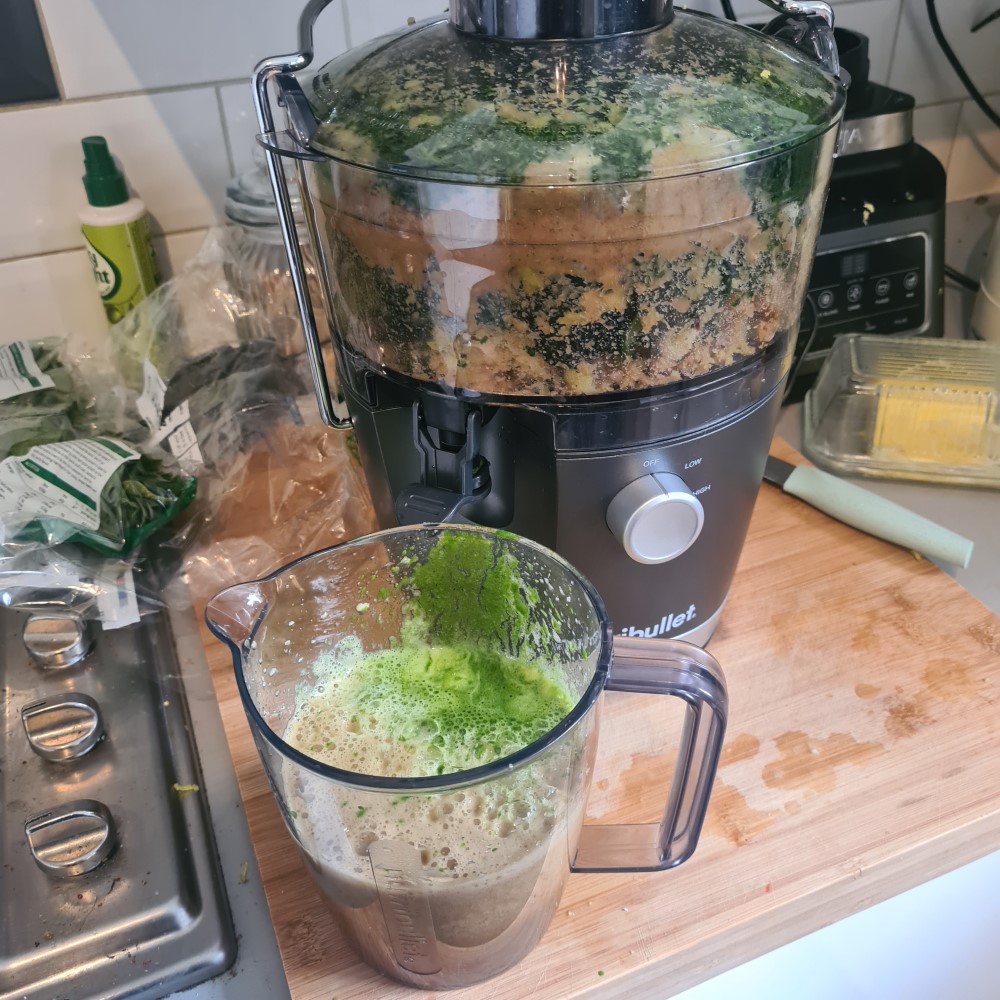
When testing we take into account the ease of assembly and general use, the amount of froth and pulp in the finished juice, and the speed at which a juicer can produce juice. Of course, different types of juicers can produce fresh juice at different speeds, so if you're someone who wants a speedy apple juice in the morning, it will be useful for you to know what to expect with your potential purchase.
FAQs
How much does the best juicer cost?
It might not be as essential as the best kettle or toaster but add a juicer to your worktop and you’ll find yourself using it almost as much as blenders out there. As well as creating exciting drinks to boost your breakfast, the same machine may be able to make frozen desserts, smoothies and even dairy alternatives, such as almond or rice milk.
Many of the best juicers come from brands you'll recognise for other kitchen must-haves. Smeg, Philips, Nina, and Nutribullet all feature in our guide. There are also top picks from Kuvings and Braun, with a price range of £100 to well over £500. A basic model can be bought for as little as £30, but for reliable operation and better build quality, it’s advisable to spend more. Budget from £70-£180 for a centrifugal model and at least £125 for an entry level masticating design, with more advanced models costing £200 upwards.
A machine that suits your daily routine is the best way to encourage you to make juicing a habit, so it’s a good idea not to buy on price alone. Instead, consider how much value different features will add to your new juicing regime.
What are the different types of juicer?
There are two types of juicer, which are known as centrifugal and masticating. They use different methods to extract the juice and are sometimes referred to as fast and slow juicers.
Centrifugal juicers are high-speed machines that extract by shredding the fruit or vegetables with spinning blades, before straining it against metal mesh to separate seeds and pith from juice. As well as being speedy, centrifugal juicers are well suited to handling hard fruit and vegetables, such as ginger, apples and carrots. They’re also good for cutting down on food prep time as many have large feed chutes that can accommodate whole apples and veggies.
However, as the process adds more air into the juice, you may find that it doesn’t store for more than a day or two and discolours quickly. Centrifugal juicers can also be quite noisy although it won’t be for long. If you plan to use your juicer mostly for OJ, you may want to consider a straightforward citrus press instead.
Masticating juicers are also called slow juicers or cold press juicers, and work by ‘chewing’ fruit and vegetables before crushing or squeezing out the juice at a gentle rate. This provides a high yield and maximum nutritional content plus the juice may have a longer shelf life. Many ‘slow’ juicers have almost caught up with centrifugal juicers in terms of speed and they’ll also be quieter while in use.
Masticating juicers can tackle a variety of vegetables, soft fruit and nuts, so they’re worth spending a bit extra on if you plan to juice every day. Most have a smaller chute than a centrifugal machine, so food requires a bit more chopping and prep to prevent clogs. You’ll find horizontal machines, which are perfect for tucking at the back of worktops below wall cabinets, and upright vertical models, which take up less space on a worktop.
What are the main features to look for in a juicer?
It’s key to choose a machine that’s easy to use and maintain. Time spent assembling and cleaning can become a reason not to juice regularly. Look for those that can be put together easily and have a non-drip spout. Ideally, they should have dishwasher-safe parts or dedicated brushes for clearing fibres and residue from mesh filters.
Power is another consideration. If you’re opting for a centrifugal machine, its wattage should be at least 400W so fruit hitting the blades won’t slow it down. More than one speed, or automatic adjustment, will also be useful as centrifugal juicers handle hard fruit at high speed. but need a slower one for soft fruit. Masticating machines will be lower wattage, usually between 150-240W as the slower juicing process doesn’t require the extra power. One speed should do for all, with a reverse to clear blockages.
Look for models that can make more than smooth juice if you’re keen to get extra mileage out of your purchase. Additional filters that blend smoothies, make fruit coulis or juice with pulp, and solid inserts that can process frozen fruit into sorbet will make your juicer really earn its place on the kitchen worktop.
Get the Ideal Home Newsletter
Sign up to our newsletter for style and decor inspiration, house makeovers, project advice and more.

Molly is Ideal Home’s Kitchen Appliances Editor, the Ideal Home Certified Expert on Appliances. An all-around cooking and baking enthusiast, she loves finding the next must-have product for readers that will their kitchen a better place. She joined the team in September 2022 after working on the editorial teams of Real Homes, Homes & Gardens and Livingetc.
For the last 4 years, she's been reviewing hundreds of small appliances; conducting tests at home or in the Ideal Home test kitchen. She would be hard-pressed to pick a Mastermind specialist subject but air fryers are her ultimate area of expertise, after testing just about every single one released since 2022.
To keep ahead of trends and new releases, Molly has visited the testing and development spaces of multiple kitchen brands including Ninja Kitchen and Le Creuset as well as attended consumer shows such as IFA, hosted in Berlin to see the cooking innovations of the future.
-
 Moving from the city to the country transformed this family's life
Moving from the city to the country transformed this family's lifeA sympathetic restoration and a modern extension have given this period property a new start as a practical family home
By Lou O’Bryan
-
 Sorry florals, botanical patterns are trending for 2025 – interior experts share the best ways to make them work in your home
Sorry florals, botanical patterns are trending for 2025 – interior experts share the best ways to make them work in your homeEmbrace bold blooms in your scheme
By Maddie Balcombe
-
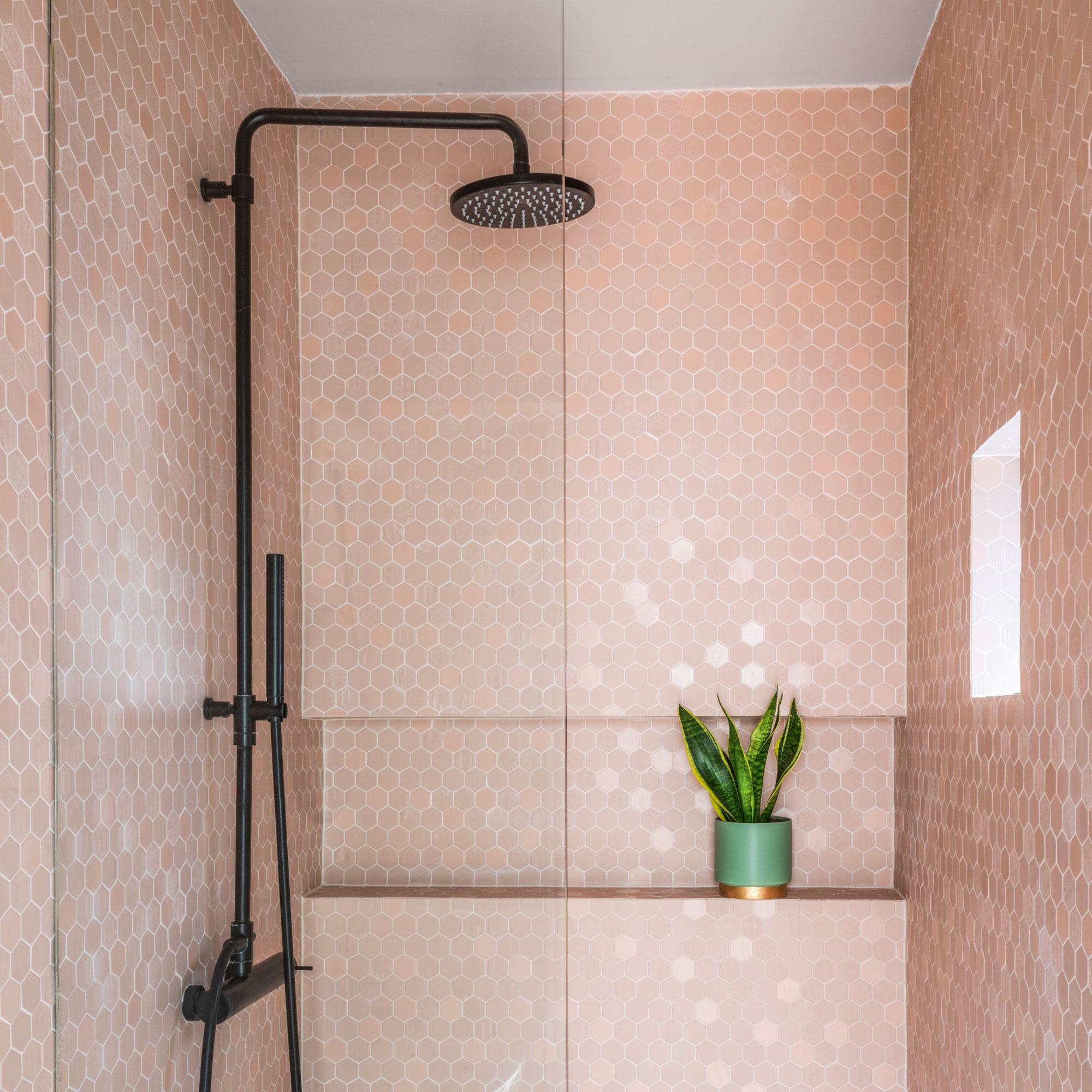 Are rainfall shower heads out of style in 2025? These 3 alternatives could be the next best thing
Are rainfall shower heads out of style in 2025? These 3 alternatives could be the next best thingIt could be time to try something new
By Holly Cockburn